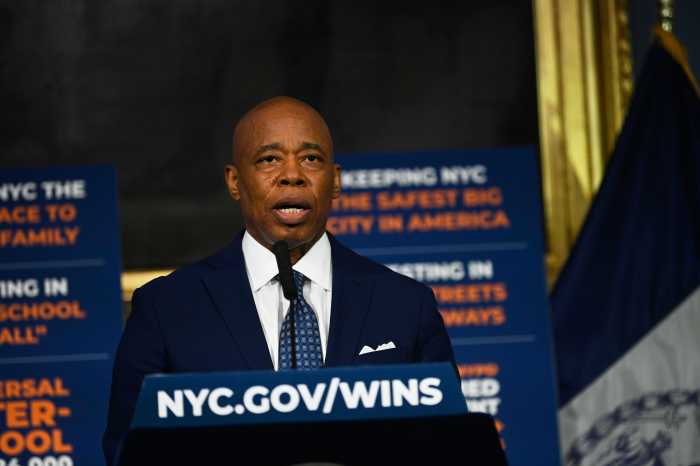By MICAH HALPERN | Barack Obama has made more than 900 public presentations and speeches since assuming office. Every one of them has received media coverage. Obamacare aside, few have received the coverage given to his two most recent talks about the Middle East.
In the first of these speeches, a policy speech presented to the American public at large, the president spoke of Israelis and Palestinians returning to the borders of 1967 and thereby achieving a peaceful status quo. In the second speech, publicized yet delivered before the select group called AIPAC — the American Israel Public Affairs Committee — the president eloquently said that’s not really what he meant. In plain English, the president flip-flopped.
The president of the United States is not supposed to flip-flop. He is supposed to gather information, weigh options and say what he means. The American people and the world need to be able to trust the president’s instincts and rely on his decision-making skills.
Officially, according to the administration, the first speech was a policy speech. The redefined speech before AIPAC was not. So why try to change what was said to the public when speaking to the Jewish group?
Because the Jewish world was livid with the president’s original remarks and when the Jewish world is livid, their political contributions dry up.
When Obama referred to the ’67 borders he spoke with the full understanding that the topic was a lightning rod for supporters of Israel — especially on Capitol Hill and especially within his Democratic donor base.
What he should have known is that while the ’67 borders might be the foundation of the discussion about peace between Israelis and Palestinians and the desire of those requesting Palestinian statehood, those borders would ultimately be the end result of the negotiations and the ideal conclusion for the Palestinian side, not the starting point of negotiations. And even though the president did make mention of agreed-upon land swaps, Jewish leaders were very upset by his choice to include the borders in a public pronouncement and policy statements.
The conservative estimate is that Jewish contributions to the presidential election campaign fill one-third of the Democratic coffers. Other estimates put that number at 50 percent. Then there are congressional donation dollars. That’s a lot of money from a small minority of voters.
In 2008, Obama received 78 percent of the Jewish vote. But that’s not what put him over the top. Almost 100 percent of Jews come out to vote. And that still amounts to only about 2.2 percent of the population and 2.5 percent of the vote. Jewish contributions to the Democrats and to the presidential election campaign far exceed their numbers. That’s what makes the difference. That’s why this president and every other has courted Jewish voters.
In this era of soft money it is very hard to determine the exact figures, but the implication is very clear. Even a 10 percent drop in satisfaction by the American Jewish community can result in a huge loss to the Democrats. And fairly or not, everyone knows that the chances of winning an election are often based on the amount of money in the campaign fund.
Those running for election in November 2012 have to find their money, too. And the Jewish donors who were outraged by the president’s first speech and unsatisfied by his second speech, are going to ask, “Where were you when the president was making statements about ’67 borders?” Congress has to decide whether to follow the president or withhold funds to the newly minted unity government between the Palestinian Authority and Hamas.
It is the pragmatic element that upsets Jewish donors more than any other single dimension of the president’s policy as articulated in his speech. To urge Israel to negotiate with the Palestinian Authority that has just partnered with Hamas, a terrorist group bent on Israel’s destruction, suggests that deep under this president, the White House does not fully understand the meaning of peace process.
The 1967 border between Israel and the Palestinians truly is indefensible. At its thinnest point it is only about seven miles across to the Mediterranean Sea. The late statesman Abba Eban, who served as Israel’s foreign minister during the Six Day War, dubbed the pre-1967 border “The Auschwitz Border.”
For Obama, it’s about dollars. For Israel and the Jewish world, it’s about security and defense. For everyone, it’s about survival.
Halpern is a columnist and a social and political commentator. His latest book is “Thugs: How History’s Most Notorious Despots Transformed the World Through Terror, Tyranny, and Mass Murder” (Thomas Nelson).






































